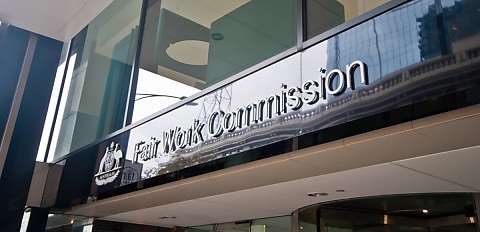The Fair Work Commission (FWC) announced yesterday (3 June) that it would increase the national minimum wage and all modern award minimum wages by 3.75 per cent following its Annual Wage Review 2023–24.
The increases to the nation’s minimum wages will take effect at the beginning of the new financial year on 1 July 2024.
In making the decision, the FWC stated that the increase determined is “broadly in line with forecast wages growth across the economy in 2024 and will make only a modest contribution to the total amount of wages growth in 2024”.
“We consider therefore that this increase is consistent with the forecast return of the inflation rate to below 3 per cent in 2025,” it said.
The FWC further noted that it was inappropriate to increase award wages “by any amount significantly above the inflation rate, principally because labour productivity is no higher than it was four years ago”.
Westpac senior economist Justin Smirk said that the Reserve Bank of Australia (RBA) “would be comforted” by the FWC’s decision.
“Not only did the FWC note that they considered the rising cost of living for the workers affected by the decision, but they also [considered] the rejigged stage three tax cut and broader cost of living relief those workers will be receiving from July 1,” Smirk said.
“We see this as a balanced decision that provides a reasonable real wage increase for workers facing cost of living pressures while ensuring wage outcomes are more in line with labour productivity, especially if we see the improvement in productivity Westpac, the Treasury and the RBA are all expecting.”
Catherine Birch, ANZ’s senior economist, said the rise of 3.75 per cent was in the middle of the major bank’s forecast of 3.5 per cent and the decision by the commission “does not change the risks and outlook for wages, inflation or the cash rate”.
“While the RBA had not published explicit expectations, we think the outcome is likely within its expected range as well,” Birch said.
“The RBA’s latest forecasts have the Wage Price Index (WPI) at 3.8 per cent year-on-year in 4Q24, and 3.6 per cent year-on-year in 2Q25.”
Also commenting on the decision, Commonwealth Bank of Australia (CBA) economist Stephen Wu said that they had expected that easing inflation over the past 12 months “would have meant a lower outcome than last year”.
“Last year’s 5.75 per cent award wage increase was set in the context of inflation running at 7 per cent per year, and data that showed the pervious year’s increase in the award wage only had a minimal contribution to overall wages growth,” Wu said.
“We expect this year’s award decision to mean that the 3Q24 WPI outcome will be much lower than a year ago, when the 3Q23 outcome of 1.2 per cent per quarter was boosted by the FWC decision.
“We continue to see wages growth moderating to 3.5 per cent by the end of this year as the labour market cools further and the unemployment rate lifts.”
The March quarter WPI data released by the Australian Bureau of Statistics (ABS) revealed an increase of 0.8 per cent, leading the major bank economists to determine that wages growth has passed its peak.
[RELATED: Wages growth past its peak: Economists]

